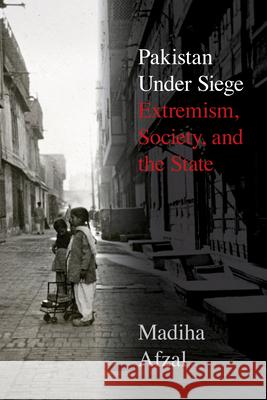Pakistan Under Siege: Extremism, Society, and the State » książka
Pakistan Under Siege: Extremism, Society, and the State
ISBN-13: 9780815729457 / Angielski / Miękka / 2018 / 240 str.
How the state, education, society, and religion interlock and interact to create an environment in which jihadism thrives in Pakistan. What explains the continued growth of extremism in Pakistan? This question is of more than academic interest, given the ongoing militant actions in that country --as well as in Afghanistan, India and elsewhere -- of extremist groups based in Pakistan. Madiha Afzal has dug into the question with in-depth field research, rigorous analysis of survey data and her own intuitive understanding of the country. Pakistan Under Siege examines Pakistanis' attitudes toward religion, religious minorities, and jihad, as well as the central narratives that define their views of the rest of the world. It then traces the role of education--the lack of access to it and the poor quality and biased curricula of both the mainstream education system and religious schools--in shaping how Pakistanis think, often in self-destructive ways. Afzal looks at other factors that explain attitudes toward extremism in Pakistan. These include the role of the government and politics, especially the state's relationship with Islamist parties and militant groups; social structures and the country's ever-present conspiracy theories; religion; the loud and unruly media environment; the geopolitics of South Asia; and Pakistan's unique and tortured birth. Pakistan certainly is not the only country where jihadist extremism has emerged and Afzal draws out the lessons from Pakistan's experience that contribute to an understanding of the roots of extremist attitudes and violent extremism globally.











